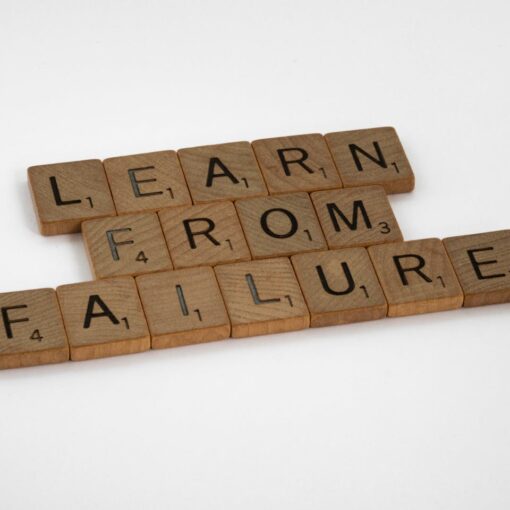Critical thinking and emotional intelligence are both phrases that you might be hearing a lot at the moment, but have you ever wondered what these two phrases refer to, and how they relate to each other?
Critical thinking is the ability to assess situations rationally, without emotion. Emotional intelligence is the ability to identify, make sense of, and manage your emotions. Critical thinking is often key to emotional intelligence, even though the relationship between logic and feeling can sometimes be difficult to understand.
If you want to improve your emotional intelligence, you’re going to need some superb critical thinking skills, and in this article, we’re going to explore how the two things relate in more detail.
What Do These Two Terms Mean?
Let’s briefly define the two terms we’ll be using in this article. These are somewhat simplified definitions, as both of these abilities are in-depth and involve a lot of different skills.
Critical thinking involves looking at the reality that you are operating in and making objective assessments of that reality. It is based in rationalization and logic, and involves understanding what facts you are currently dealing with. It does not involve emotions in most cases; it’s all about a factual understanding of the world.
Emotional intelligence, on the other hand, is about how you process your feelings. It involves assessing your inner state, identifying the emotions that you are experiencing, and then deciding how to use (or not use) those emotions in the way that you interact with the world. emotional intelligence is hard to achieve, but it is possible.
Emotional intelligence is commonly said to have four key areas: self-management; self-awareness; social awareness; and relationship management.
How Do Critical Thinking And Emotional Intelligence Relate To Each Other?
Given the above definitions, you might not be sure how critical thinking could connect with emotional intelligence. Some people think these two things are not particularly connected, but in fact, you will really struggle to practice emotional intelligence if you can’t undertake critical thinking.
One of the biggest keys to emotional intelligence is recognizing the emotions that you have and why you have them. To do this effectively, you need to be able to understand how the things you feel are triggered by the situations you find yourself in. That’s where critical thinking comes in.
Critical thinking involves assessing your current situation and figuring out what the reality is. You can then determine how this reality is affecting your emotions, and how valid those emotions are given the reality.
Let’s look at an example of this.
You are angry with a friend because they damaged your car when leaving your house, and they didn’t tell you about it. The anger is the emotion you’re feeling.
You use your critical thinking skills to assess the situation from a logical perspective: your friend damaged your car, but they are usually upfront and honest. They may not have realized they had scraped it. They therefore couldn’t have told you, and the damage was accidental.
You recognize that your anger is not a valid response to the situation, and choose not to act on it. Instead, you talk to your friend calmly, and they apologize for the damage, offering to pay for it.
In this scenario, you have demonstrated emotional intelligence, but you first needed to engage your critical thinking skills to recognize that the behavior was not in character, and that there was more to the situation than you initially realized. You are then able to regulate your emotions and not act impulsively.
How Directly Can Critical Thinking Improve Your Emotional Intelligence?
As the above scenario indicated, critical thinking is one very effective way to better regulate your emotions. It is believed that the part of the brain that regulates emotions and the part that regulates critical thought can’t operate well simultaneously.
If you dedicate a lot of brainpower to the amygdala, the area of the brain responsible for emotions, you cannot dedicate much to the prefrontal cortex, the area responsible for logic and rationalization.
That means that if you’re giving your emotions a free rein, you aren’t able to think very logically. However, if you make sure you are dedicating mental energy to the prefrontal cortex, you put yourself in a much better position to make good decisions that are based on the reality that you are living in.
A lot of people recognize that unregulated emotions are a major barrier to critical thinking – and to emotional intelligence. If you make sure you put critical thinking first, you will gain better control over your emotions, and you will be more emotionally intelligent.
This may sometimes involve saying to yourself, “I recognize that I am upset about this situation, because of X, Y, and Z.” This thought acknowledges the emotion, but does not allow it to blot out the rest of the reality you are dealing with.
Once you are in this position of being able to recognize how your emotions are products of your situation and how they are affecting you, you can decide which ones to act upon. This is essential to achieving emotional intelligence.
Sometimes, assessing a situation with both critical thinking and emotional intelligence will result in you not acting upon your emotions at all – even if you acknowledge that they exist and they are valid. At other times, you’ll definitely be using your emotions to guide how you react to a situation, because you’ll have used your critical thinking to recognize that this is an appropriate response.
Conclusion
As you can see, therefore, critical thinking and emotional intelligence are closely linked to each other. If you are not able to assess situations objectively using the skills involved in critical thinking, you’re not going to be able to properly assess how your emotions relate to reality, and you will therefore struggle to achieve emotional intelligence.
You need to utilize both skills if you want to be successful in life; they are the keys to making good decisions and maximizing your chances of a positive outcome.
References
https://www.psychologytoday.com/gb/blog/thoughts-thinking/202212/the-link-between-emotional-intelligence-and-critical-thinking
https://uk.indeed.com/lead/why-emotional-intelligence-matters-for-talent-professionals?aceid=





